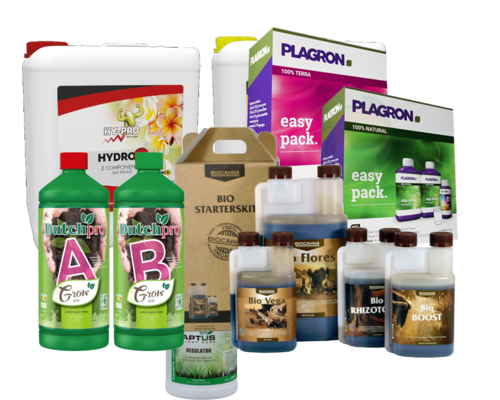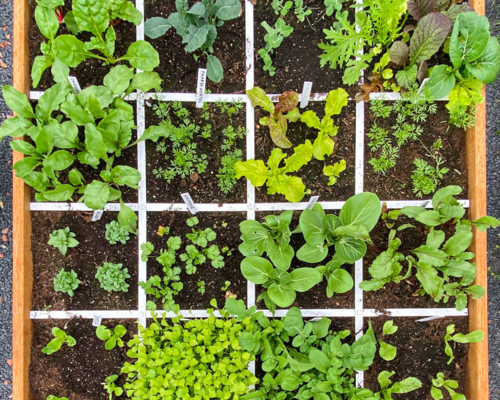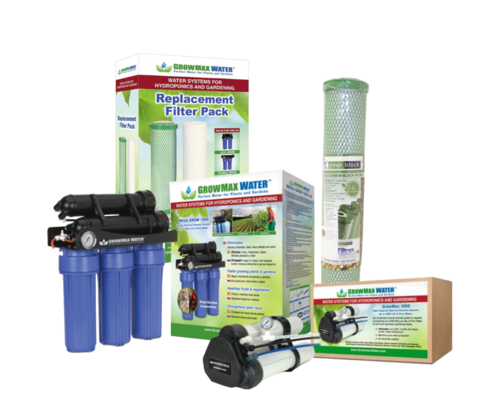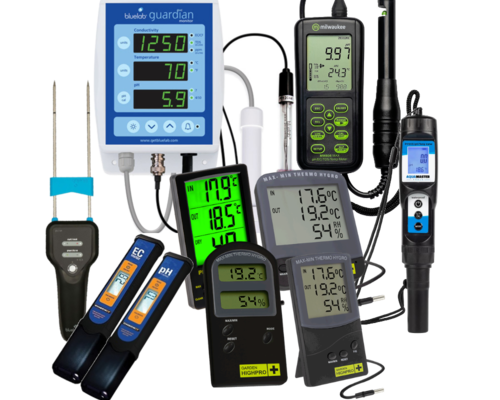Is plant nutrition necessary for your crop?
Plant nutrition is necessary for the growth and health of your crop, but plant nutrition needs vary depending on crop type, soil, climate and other factors. Some plants are able to absorb nutrients from the soil without additional fertilization, while others need additional plant nutrition to stay healthy and grow well.
As a general rule, plants need regular plant nutrition to grow and stay healthy, it is recommended that plants be given plant nutrition at least once a month during growing seasons. In addition, it is important to regularly take soil samples and measure pH and EC levels to ensure that the right amount of nutrients are present in the soil.
What factors are crucial for your crop?
Plant nutrition is important for the growth and health of your crops, but it is not the only care they need. There are several factors that affect the growth and health of your plants, and just giving plant nutrition is not enough to ensure they stay healthy and grow optimally. Here are a few other factors that affect plant growth and health:
- Water: Plants must be watered regularly, depending on the species and climate, to stay healthy.
- Light: Plants need light to grow and store energy, and different plants need different amounts of light.
- Soil: Soil must contain enough nutrients and water to support plants.
- Temperature: Plants need a certain temperature range to grow and stay healthy, each type of crop has its own optimal temperature.
- Ventilation: Plants need fresh air to stay healthy, each type of crop has its own optimal air flow.
What elements does a plant need?
Plant nutrition is an important factor in the growth and development of your plants. Unlike humans and animals who can eat food to cover their nutritional needs, plants must get their nutrients from the soil. These substances are necessary for the healthy growth of plants and must be present in the right amounts.
Plants need sixteen elements to grow. Five of these;
- nitrogen (N),
- phosphorus (P),
- potassium (K),
- calcium (Ca)
- and magnesium (Mg),
are considered macronutrients because they are needed in larger quantities. The remaining eleven, including iron (Fe), zinc (Zn), manganese (Mn) and molybdenum (Mo), are considered micronutrients because they are needed in much smaller amounts.
Some soils contain all of these substances in sufficient quantities, while others do not. Therefore, it is important to know which substances are missing and what plant nutrition is needed to supplement them. It is not always easy to find the right balance, but this is necessary to ensure healthy plant growth.
Synthetic or organic plant nutrition?
There are different types of plant nutrition available, including synthetic fertilizers and organic fertilizers. Synthetic fertilizers are specifically formulated to supplement certain elements and are often able to deliver these elements to the plants quickly. However, they are not always best for the soil or the environment. Organic fertilizers deliver the substances gradually while helping to improve soil structure and soil life.
Difference between synthetic and organic plant nutrition
Organic and synthetic plant nutrition are two different types of products used to fertilize plants. Organic plant nutrition is made from natural products such as compost, manure and fertilizers made from animal products. It contains many different nutrients that are slowly released into the soil, allowing plants to be fertilized gradually. Organic plant nutrition also helps improve soil structure and soil life.
Synthetic plant nutrition is made from artificial products and contains specifically selected nutrients that are quickly released into the soil. It is more efficient at fertilizing plants but has less beneficial effects on the soil and environment. In addition, too much synthetic fertilizer can be harmful to plants and soil life.
In general, it is recommended to use a combination of both, depending on the specific needs of the plants and soil. It is important to remember that too much of either or both types of plant nutrition can cause damage to plants and soil, so it is important to follow the manufacturer's recommendations.
Difference between organic and biological plant nutrition
There is sometimes confusion over the terms "biological plant nutrition" and "organic plant nutrition," but there is a difference between the two. Organic plant nutrition is plant food made from organic materials, such as compost, manure or dried and pulverized raw materials, such as leaves or chicken manure. These nutrients are gradually released into the soil and are available to the plants over an extended period of time.
Biological plant nutrition is plant nutrition made from bioligical certified ingredients that meets the standards of the Organic Certification Organization. This means that the nutrients come from organic producers and do not contain synthetic substances or pesticides.
It is important to note that not all organic plant nutrition is bioligical, and vice versa. A product sold as organic plant nutrition does not have to be certified bioligical, while organic plant nutrition must always contain organic materials.
In short, if you are looking for healthy and environmentally friendly plant nutrition, bioligical plant nutrition is a good choice. If you prefer to use products that come from organic producers, organic plant nutrition is also a good option.
Can you give your plant too much plant nutrition?
Yes, plants can be given too much plant nutrition, which can lead to plant and soil damage. Over-fertilizing can lead to burning of roots and leaves, growth of unwanted weeds, reduced uptake of other important nutrients and increased leaching of nutrients into surface water.
It is important to follow the manufacturer's recommendations and avoid using too much plant nutrition. It is also important to regularly take soil samples and measure pH and EC levels to ensure that the proper amounts of nutrients are present.
When will you water your crop?
The frequency with which you should water a plant depends on several factors, such as pot size, plant type, climate and humidity. As a general rule, you should water your plants when the top 2 to 3 inches of the soil feels dry. Here are a few guidelines:
- Summer: In summer, many plants should be watered more regularly than in winter because they use more water and the soil dries out more quickly due to evaporation.
- Indoor plants: Indoor plants usually need more water than outdoor plants because indoor air is often drier than outdoor air.
- Size pots: Plants in small pots usually need water more often than plants in large pots because the soil in small pots dries out more quickly.
It is important to make sure that your plants are never overwatered, this is because overwatering can also be harmful to your plants. It is better to give plants too little water than too much, since too little water is more recoverable than too much water.
How much water do you give your plant?
The amount of water your plant needs depends on several factors, including the size of the plant, the weather, the type of soil and the stage of your crop. Here are some general guidelines:
- Give the plant enough water: Plants need water to grow and stay healthy. It is important to give them enough water so that the soil does not become too dry.
- Water depending on the type of soil: Plants grow best in a moist but not wet environment. Soil dries out faster than coco, so plants in soil need water more often.
- Be regular: It is better to water plants regularly with small amounts of water than to overwhelm them sporadically with a lot of water.
- Monitor the soil: Feel the soil regularly to see if it is dry or moist. If the soil is dry on the surface, it is time to water.
- Pay attention to weather conditions: In hot, dry weather, plants need water more often than in cooler, moist conditions.
Do you want more information?
Want more information on a specific topic? Check our "Knowledge Center" blog page to see if the information you need is among them. Is the information not in one of our blogs? We have a piece of text with each category where the products are explained in broad terms. The most popular categories are:




